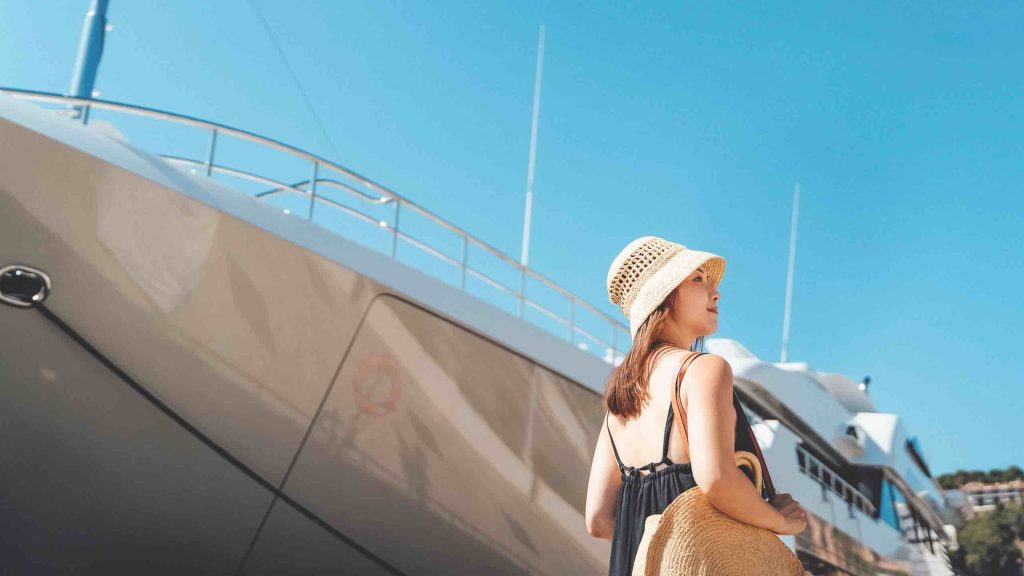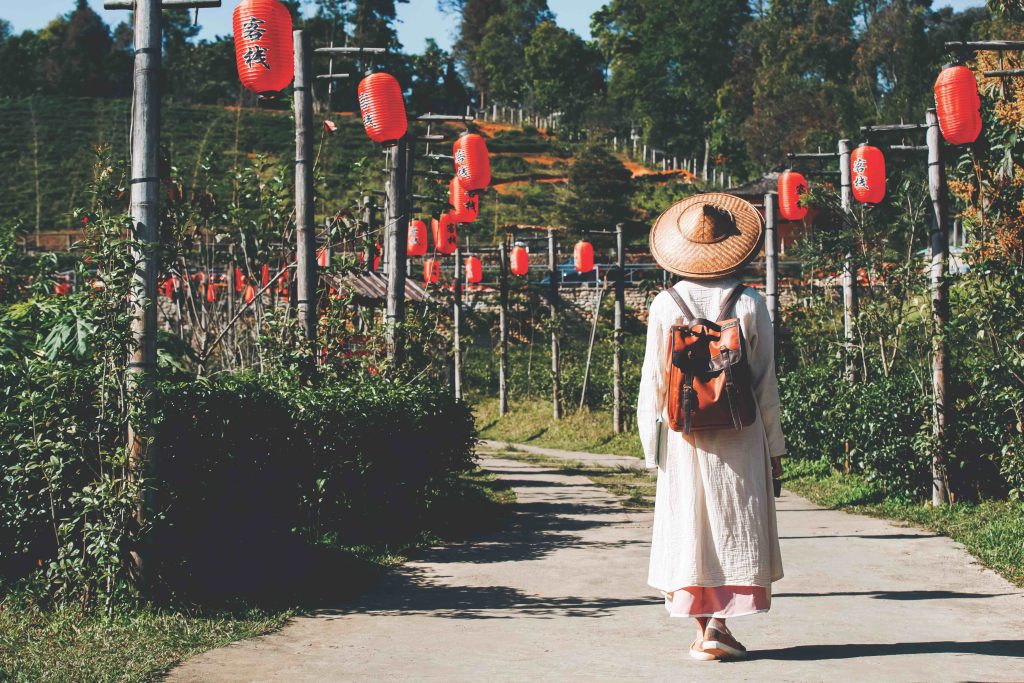
Understanding the motivations and expectations of high-value Chinese females is essential, as they play a pivotal role in shaping the future landscape of luxury travel.
The document titled “China’s Women in Charge” by ILTM Asia Pacific in collaboration with FINN Partners provides a comprehensive analysis of the travel preferences and behaviors of affluent female Chinese travelers. This study highlights significant trends shaping the luxury travel market in China, driven by the preferences and priorities of wealthy, independent women.
Redefinition of Luxury
The affluent female traveler in China is no longer content with traditional luxury, such as five-star accommodations or opulent amenities. Instead, she seeks experiences that offer depth, authenticity, and personal connection. For these women, luxury means more than material abundance—it’s about self-discovery, cultural immersion, and meaningful engagement with the world. They value rare and unique experiences, like spending time in remote villages, participating in local traditions, or learning new skills that contribute to personal growth.
This change represents a profound shift in values; travel is no longer about showcasing wealth but about enriching the soul and fostering personal fulfillment. For luxury brands in the travel industry, this means creating experiences that go beyond surface- level glamour, focusing instead on crafting memorable, personalized journeys that resonate deeply with travelers. These experiences often include exclusive access to local artisans, customized itineraries that avoid typical tourist traps, and immersive cultural or adventure-based activities.
Independence and Empowerment
The rise of the independent Chinese female traveler marks a cultural evolution in China, where women are assuming roles traditionally occupied by men and making autonomous choices about their leisure and lifestyle. These travelers view solo journeys as an empowering experience that allows them to take control of their time, decisions, and desires. Many affluent Chinese women feel that traveling alone helps them step outside their comfort zone, build confidence, and develop resilience.
Solo travel among women also reflects broader societal changes in China, where women are becoming more financially independent and assertive in decision-making across various aspects of life, including family and work. They choose destinations based on personal interests, whether it’s for adventure, wellness, or cultural enrichment, with itineraries that are fully self-directed and unbound by traditional family or group expectations. The independence offered by solo travel enables these women to engage in self-reflection and pursue their passions freely, making travel a form of personal empowerment and liberation.
Wellness and Mental Health
Mental and physical wellness has become a significant aspect of travel for affluent Chinese women, who view travel as an opportunity to disconnect from the demands of daily life. This demographic increasingly prioritizes wellness-focused destinations, such as retreats that offer mental health therapies, yoga, fitness classes, and spa treatments designed to rejuvenate both body and soul.
They seek destinations that allow them to reconnect with nature, enjoy peace and quiet, and engage in mindfulness practices that promote mental clarity and relaxation. Wellness travel destinations in serene natural settings, like Bali, Switzerland, and the Japanese countryside, are particularly popular among this group. Furthermore, wellness travel allows them to explore alternative health practices, such as Ayurveda, acupuncture, and detox programs, catering to a growing interest in holistic health.
For travel brands, catering to these wellness desires means creating spaces that feel like sanctuaries—places where guests can unwind without the pressures of schedules or distractions. This could include secluded wellness retreats, guided meditation sessions, forest bathing, or farm-to-table organic dining options that support health and healing.
Technology and Convenience
Affluent Chinese women are tech- savvy travelers who expect seamless technology integration across all stages of their travel experience. They rely on digital platforms for everything from booking to navigation, and they expect intuitive, accessible interfaces that facilitate effortless planning. Mobile apps that provide real-time updates on flights, weather, and local events are indispensable tools. Likewise, translation apps help bridge language barriers, making them more comfortable exploring unfamiliar locations independently.
Additionally, these travelers value personalization through technology. They expect digital services that understand their preferences, offering curated recommendations that suit their tastes and interests. For instance, some high-end hotels use artificial intelligence to tailor services to guest preferences, such as arranging specific room temperatures, personalized meal plans, or customized activity suggestions. The integration of technology provides these travelers with convenience and efficiency, allowing them to optimize their time and experience the journey in ways that feel tailored and comfortable.

Wellness-focused travel options are becoming a top priority for those seeking rejuvenation and balance.

Chinese women see travel as a vital escape, allowing them to break free from the pressures of everyday life.
Exploration of Niche and Unexplored Destinations
As affluent Chinese women redefine luxury, they’re turning to niche and unexplored destinations that offer rare and enriching experiences. Traditional tourist destinations such as Paris, London, and New York are less appealing to this demographic, who instead seek out places that provide solitude, exclusivity, and a unique story. They are drawn to destinations like Iceland, Patagonia, Bhutan, and the rural areas of Italy, which provide unspoiled natural beauty, cultural richness, and a sense of discovery.
In choosing lesser-known destinations, these women avoid the crowds and find places where they can immerse themselves in local culture without the distractions of mass tourism. This interest in niche destinations allows for intimate connections with locals, opportunities to experience authentic traditions, and, often, the chance to contribute to local communities. It’s a trend that appeals to those who desire a travel experience that feels truly their own and allows them to bring back memories and stories that few others can share.
Social Media Influence
Social media remains a significant influence in the lives of affluent Chinese travelers. Platforms like WeChat, Weibo, and Xiaohongshu (Little Red Book) are widely used for sharing travel experiences, seeking travel inspiration, and connecting with fellow travelers. Unlike in the past, where social media posts might highlight luxury brands and opulent surroundings, today’s affluent Chinese women prioritize sharing authentic, meaningful moments that reflect their personal values and preferences.
This shift in social media behavior reveals a move away from status-driven posts towards content that showcases self-discovery, cultural learning, and memorable interactions with people and places. They use social media to document transformative travel experiences, from participating in local festivals to supporting sustainable initiatives. For brands, this trend underscores the importance of creating experiences worth sharing—those that inspire followers, tell compelling stories, and demonstrate a commitment to authenticity and social responsibility.
Sustainability and Responsible Travel
With growing awareness of environmental and social issues, many affluent Chinese women are incorporating sustainability into their travel choices. They are interested in eco-friendly accommodations, low- impact tourism activities, and destinations that practice conservation and community support. For these women, sustainability extends beyond the environment; it encompasses ethical travel practices that respect local culture, benefit local economies, and leave a positive impact on the places they visit.

For modern travelers who demand a seamless blend of technology at every stage of their journey, the integration of innovative solutions is essential for an enhanced travel experience.

By opting for lesser-known destinations, they escape the crowds and discover hidden gems, allowing them to immerse themselves in local culture without the interruptions of mass tourism.
Some are interested in “voluntourism” activities that allow them to contribute their time or resources to local projects. They want their travel to have a lasting, positive impact, whether that’s supporting local artisans by purchasing handcrafted goods or dining at farm-to-table restaurants that source locally.
These travelers choose destinations where they can actively participate in conservation efforts, such as wildlife protection programs or sustainable farming initiatives. Some are interested in “voluntourism” activities that allow them to contribute their time or resources to local projects. They want their travel to have a lasting, positive impact, whether that’s supporting local artisans by purchasing handcrafted goods or dining at farm-to-table restaurants that source locally.
The desire for sustainable travel also shapes their brand preferences; they are drawn to companies that demonstrate genuine commitments to environmental responsibility and ethical practices. Brands that align with these values not only attract affluent Chinese women but also build loyalty among a demographic that values purpose-driven travel.
Implications for the Travel Industry
The affluent Chinese female traveler is changing the face of luxury travel with her demand for authentic, purposeful, and empowering experiences. This demographic is not only redefining luxury but also setting new standards for the global travel industry. To attract this influential group, brands must focus on:
Personalized Experiences: Offering travel experiences that are customizable and aligned with the individual’s unique preferences, passions, and pursuits.
Holistic Wellness: Developing well- ness programs that prioritize mental, physical, and emotional well-being, featuring natural envi- ronments, mindfulness practices, and alternative therapies.
Sustainable and Ethical Practices: Emphasizing sustainable practices that respect the environment, preserve local culture, and contribute positively to local economies.
Tech-Driven Solutions: Integrating digital services that enhance convenience, efficiency, and personalization through- out the journey.
Cultural Depth: Creating itineraries and experiences that offer a deep, immersive connection with local cultures and traditions.
As these trends continue to grow, affluent Chinese women will play a crucial role in redefining the luxury travel sector.
Brands and destinations that embrace their preferences and values are likely to thrive, while those that remain rooted in traditional notions of luxury may struggle to capture the interest and loyalty of this evolving demographic.





